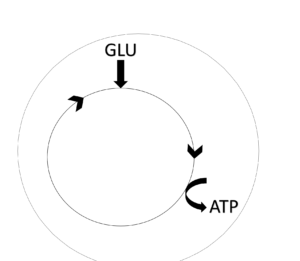Hypoxia and Metabolism

Tumors are frequently hypoxic, and glycolytic. Their metabolic pathways are rerouted to help tumor cells continue to divide rapidly under lack of oxygen, and unavailability of certain nutrients. We study how lactate, a byproduct of anaerobic glycolysis, and accompanied acidosis in the microenvironment influences cancer phenotypes. We have found that lactate can increase ROS production in the cells, and increase autophagy. Using in vitro and in silico models of cancer combined with live cell microscop, we aim to explore the role of lactate in regulating cancer growth and metastasis.
Related Publications
Hubbi ME, Gilkes DM, Hu H, Kshitiz, Ahmed I, Semenza GL (2014). Cyclin-dependent kinases regulate lysosomal degradation of hypoxia-inducible factor 1α to promote cell-cycle progression Supporting Information, Proceedings of the National Academy of Sciences (Accepted). Article
Hubbi ME, Hu H, Kshitiz, Ahmed I, Levchenko A, Semenza GL, (2013). Sirtuin-7 Inhibits the Activity of Hypoxia-Inducible Factors, Journal of Biological Chemistry, 288, 20768-775. Article
Hubbi ME*, Kshitiz*, Gilkes DM, Rey S, Wong CC, Luo W, Kim DH, Dang CV, Levchenko A, Semenza GL (2013). A non-transcriptional role for HIF-1a as a direct inhibitor of DNA replication, Science Signaling, vol. 6, pp. ra10. (Featured as a Cover Article). Article Podcast
Chaturvedi P, Gilkes DM, Wong CC, Kshitiz, Luo W, Zhang H, Wei H, Takano N, Schito L, Levchenko A, Semenza GL. (2013). Hypoxia-inducible factor-dependent breast cancer-mesenchymal stem cell bidirectional signaling promotes metastasis, Journal of Clinical Investigations, 123(1):189-205. Article
Rey S, Lee K, Wang CJ, Gupta K, Chen S, McMillan A, Bhise N, Levchenko A, Semenza GL. (2009). Synergistic effect of HIF-1alpha gene therapy and HIF-1-activated bone marrow-derived angiogenic cells in a mouse model of limb ischemia, Proc Natl Acad Sci USA. 106(48):20399-404. Article

